Experts Share the No. 1 Sign You’re Overwashing Your Hair

Are you washing your hair too much? “Hair washing is a complicated topic, and there is definitely not a one-size-fits-all recommendation for how frequently a person should wash theirs,” dermatologist Dr. Jennifer Maender tells Houston Methodist. “The type of hair you have, how old you are, the styling practices you utilize — there are many factors that come into play to answer this question.” So how do you know if you’re cleaning too frequently? Here’s the number one sign you’re overwashing your hair, according to experts.
RELATED: How to Make Hair Grow Faster.
Track Changes
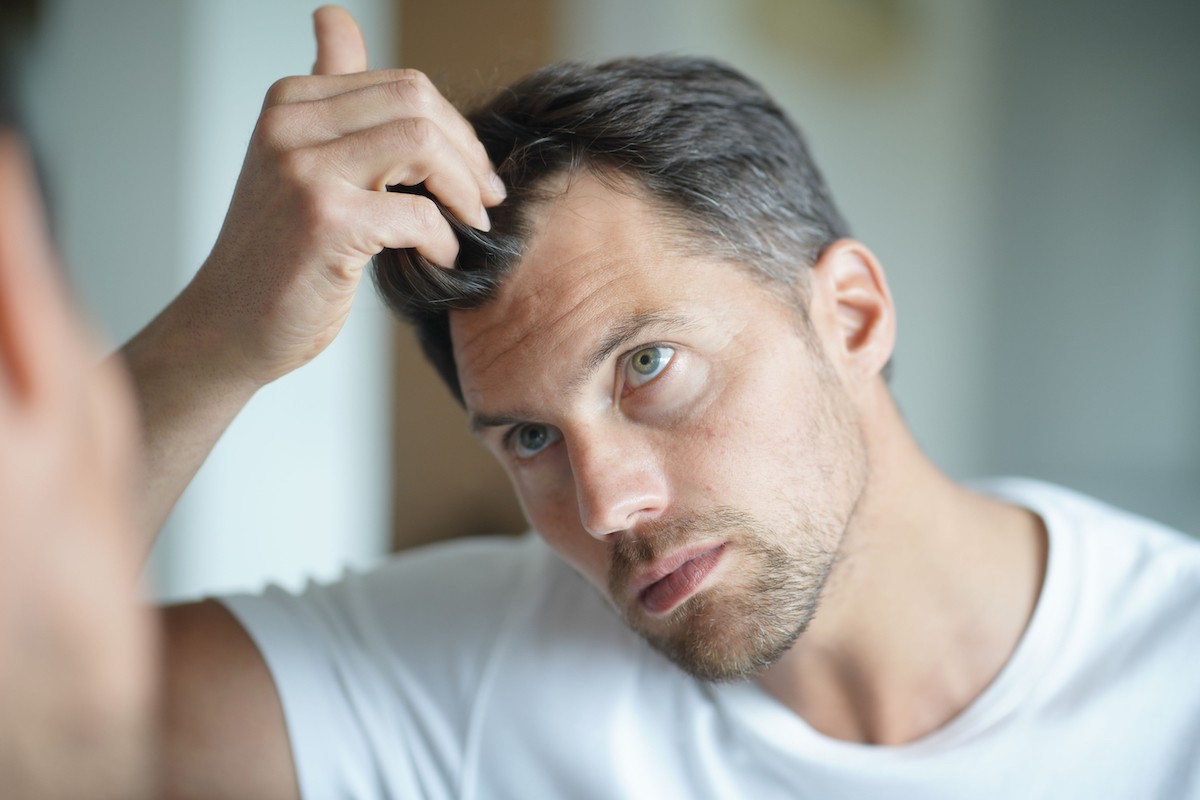
Pay attention to your hair and note when it’s starting to feel unhealthy. “There isn’t an exact number of times you should wash your hair a week,” celebrity stylist Tonya Le tells Business Insider. “It depends on your hair texture, your natural-oil production, etc. But paying attention to the little signs your hair is giving you can help you come up with the best washing schedule.”
Dry Hair
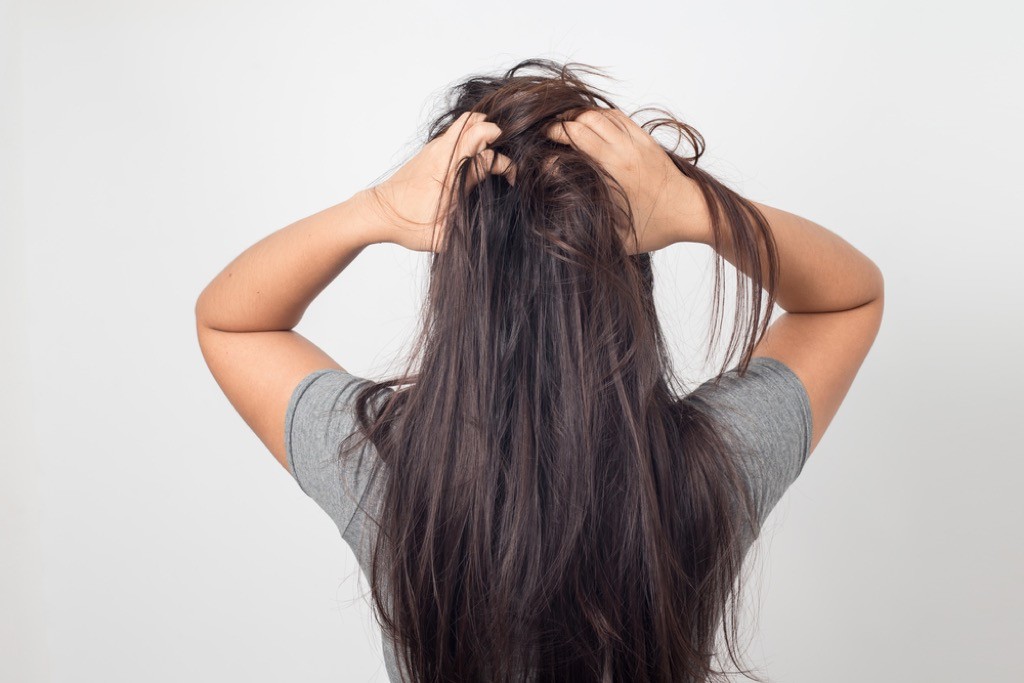
Dry hair is one of the most common signs of overwashing, experts say. “A total lack of moisture from stripping oils can also cause a dry, flaky scalp and as your scalp dries out so does your hair,” Le says. “If you seem to be getting more split ends than usual, this could also be a sign of over-washing. Wet hair is so extra susceptible to damage and breakage, so the more you wash it, the more opportunity it has to break.”
Dull Hair
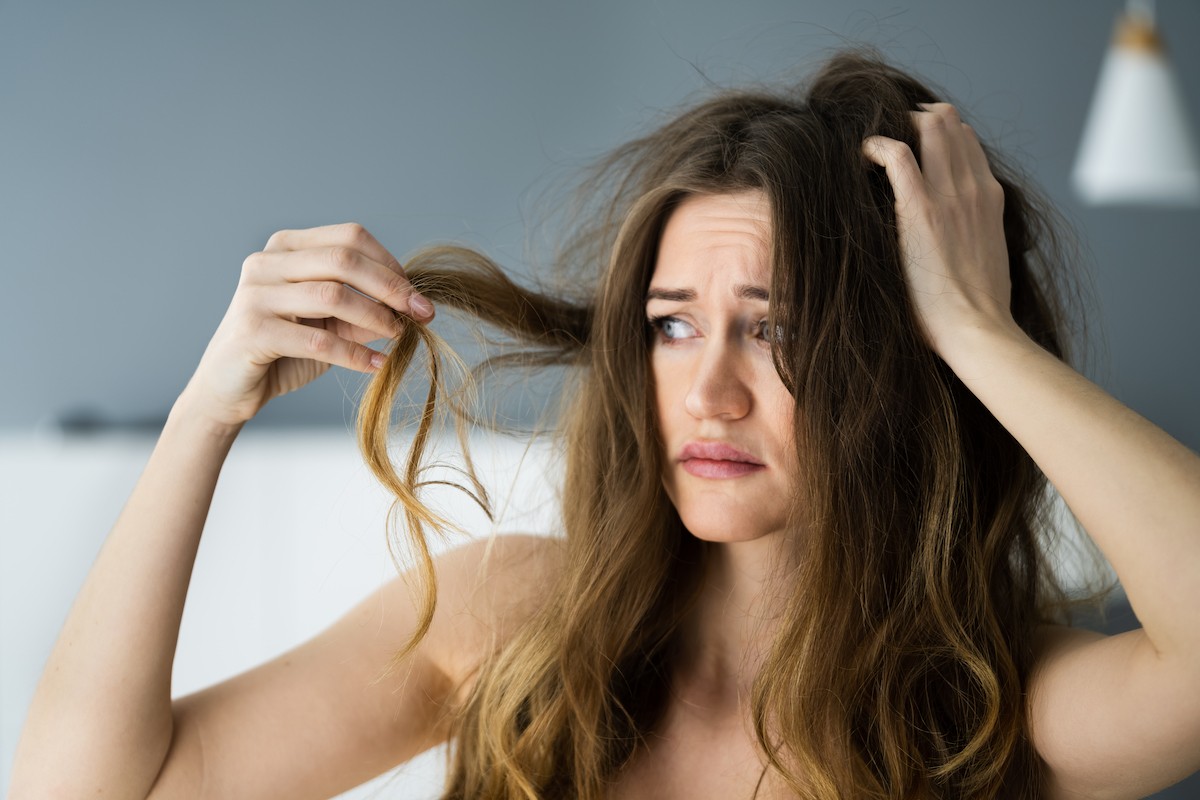
Dry hair tends to be dull. “Shiny hair is healthy hair, so if your hair has no shine, it could mean your hair is not moisturized,” Le says. “Shampoo washes away your natural oils, leaving the inner layer unprotected. Or even using too much shampoo can cause residue build-up.”
Dry, Split Ends
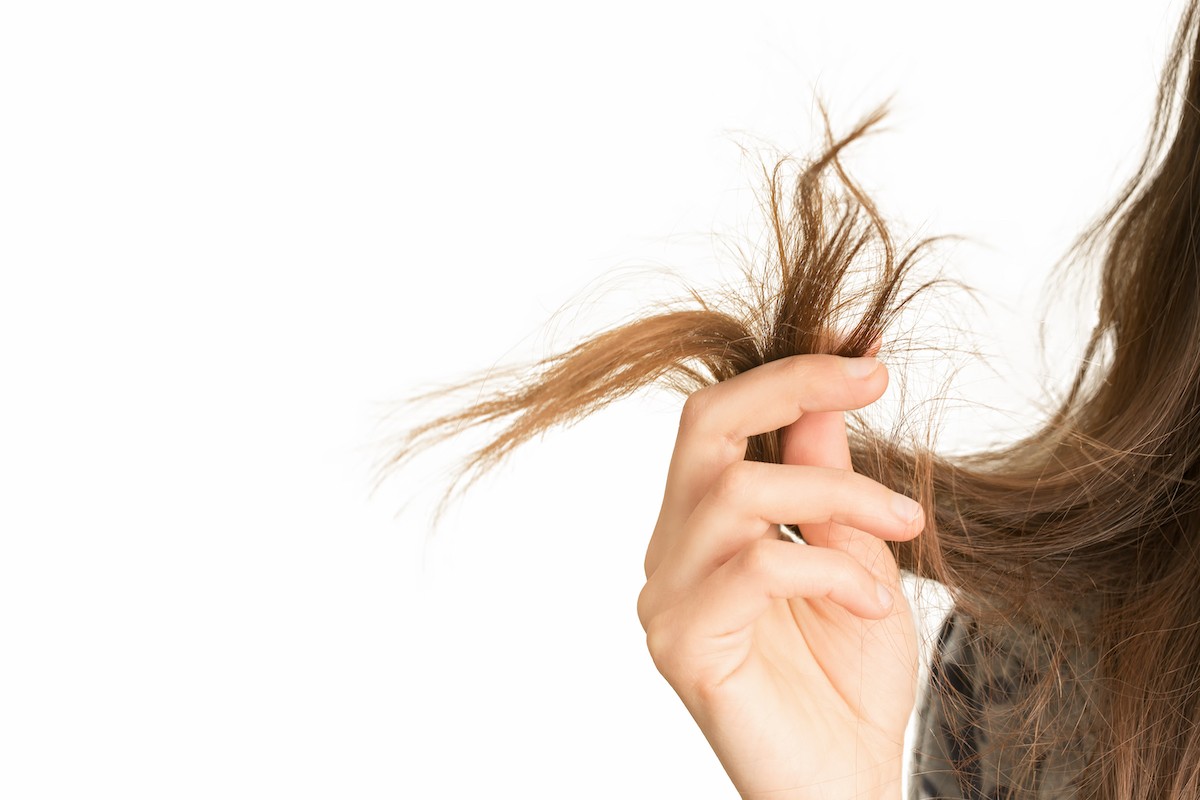
Dry split ends are a sign of overwashing. “For those with longer hair, it’s best to focus conditioning treatments on the ends, rather than the roots,” dermatologist Shilpi Khetarpal, MD, tells the Cleveland Clinic. “Some people also like to use natural oils, like coconut, olive or jojoba — but my recommendation is not to overdo it.”
RELATED: You’ve Been Washing Your Hair All Wrong.
Dandruff
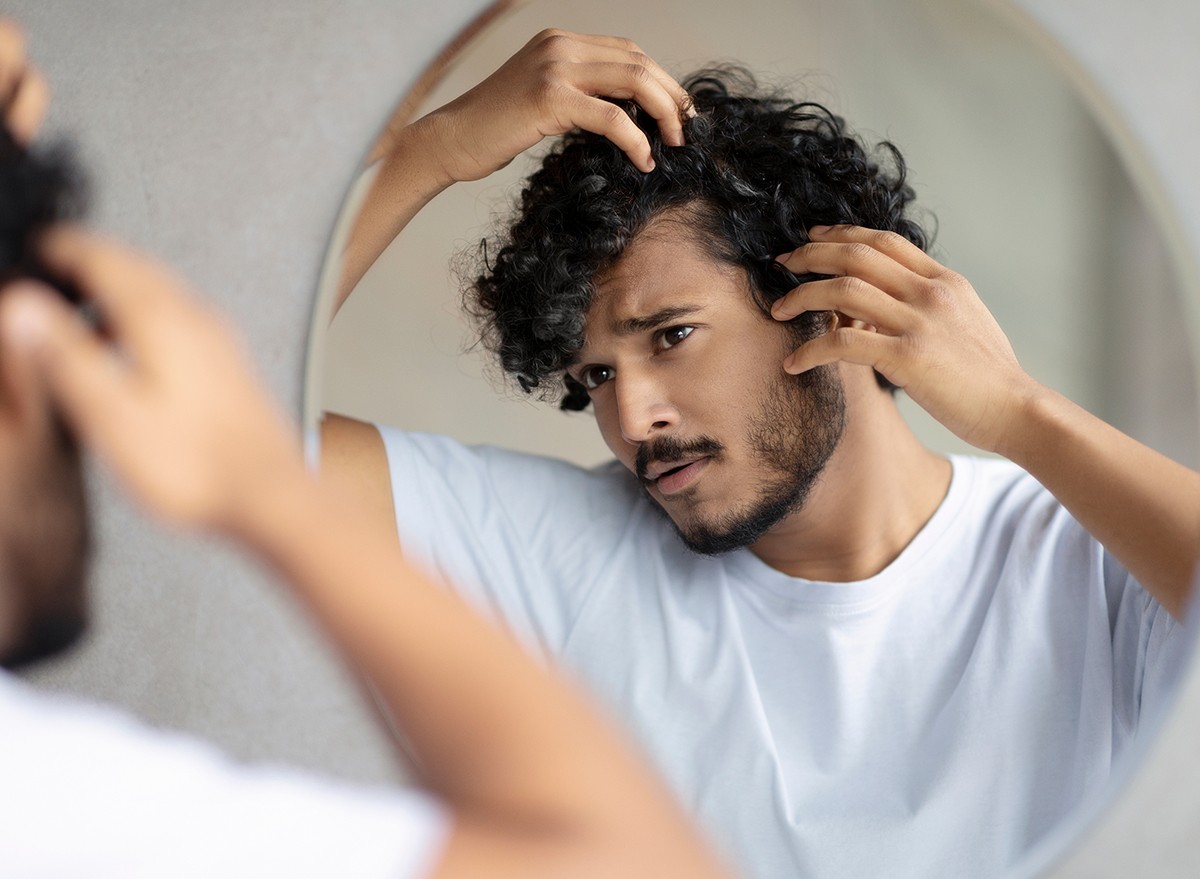
A dry scalp can lead to dandruff. “So minimizing your shampoo sessions will help give your oil glands a chance to do its job and soothe the scalp naturally,” Le says. “If it’s dandruff [gets] too intense, a scalp exfoliating treatment along with a tea tree oil scalp treatment will take care of it. And make sure to continue using a dandruff shampoo until flakes clear.”
How Often Should Hair Be Washed?
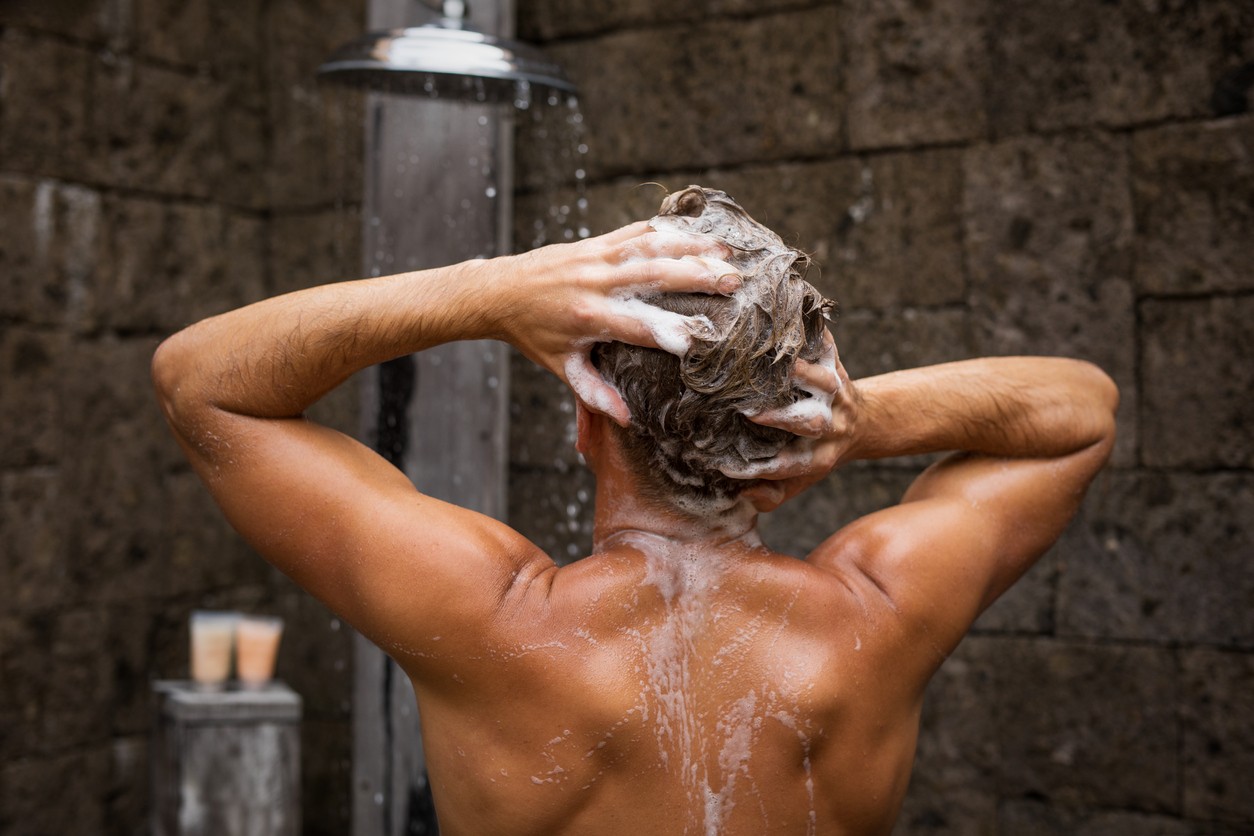
“People with thick, curly, or long hair should shampoo less frequently, as their hair type tends to not distribute oil as easily down the shaft of the hair,” says Dr. Maender. “Because African American people have a hair type prone to dryness and breakage, it is necessary to shampoo far less frequently, such as once a week — or even up to once every two weeks if their scalp does not become irritated or itchy.”